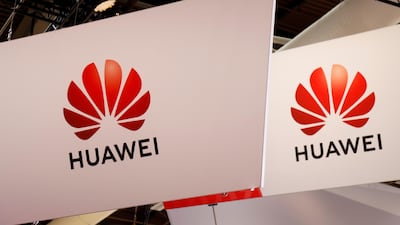A role for Chinese telecoms giant Huawei to supply parts for the UK’s 5G network has been called into question after a report by British security experts tied it to China’s intelligence agencies.
The US administration hit Huawei with severe sanctions on Wednesday and banned American telecoms firms from installing foreign-made equipment that could pose a threat to national security.
Last month details emerged from a confidential meeting of the UK’s National Security Council that Huawei could be approved for a limited role in developing Britain's 5G network.
But a report released on Wednesday by the Henry Jackson Society think tank concludes that it is “high-to-certain that Huawei acts on behalf of China’s intelligence organs”.
The findings add more credence to fears that using the company could put the UK at risk of being spied on by China.
The report – co-written by Peter Varnish, a former government security adviser, Dr John Hemmings, director of Asia studies at the Society, and the Conservative MP Bob Seely – recommends blocking Huawei.
“In the short term the government should block high-risk vendors such as Huawei from participation in the 5G network, unless they can prove a very high degree of insulation from the parent company,” it says.
“It should work with western allies to provide alternatives to Chinese tech firms in the 5G space and create a new risk-assessment system.”
In launching the report at the Houses of Parliament in London, Mr Seely said there should not be a trade off between security and business.
“We believe claims Huawei is a private company are dubious at best,” he said.
“We are having this debate because it is not a trusted member in the US or Australia, and we have considerable concern about it been a trusted member in the UK. We are highly sceptical.
“The whole process without Huawai will cost more and probably take longer, but it has been subsided by China to undercut western competition.
“There is no government position as yet, there’s still ongoing debate. This will contribute to the debate.”
Former British defence secretary Gavin Williamson was dismissed this month after officials blamed him for the security council leak on the Huawei decision.
The outcome sent shockwaves through the government over security concerns surrounding the company’s links with the Chinese government.
Under Chinese law, companies must support the state’s intelligence work. Large enterprises are also embedded with Communist Party cells that promote state interests.
US President Donald Trump on Wednesday said Huawei and 70 affiliates would be added to its “Entity List”, which bans the company from acquiring parts and technology from US companies without government approval.
Commerce Secretary Wilbur Ross said Mr Trump backed the decision to “prevent American technology from being used by foreign-owned entities in ways that potentially undermine US national security or foreign policy interests".
Mr Trump earlier in the day signed the executive order barring US companies from using telecommunications equipment made by firms deemed to pose a national security risk.
While the order did not specifically name any country or company, US officials have called Huawei a threat and lobbied allies not to use Huawei equipment in next-generation 5G networks.
Huawei, which denies its products pose a security threat, said it was “ready and willing to engage with the US government and come up with effective measures to ensure product security".


